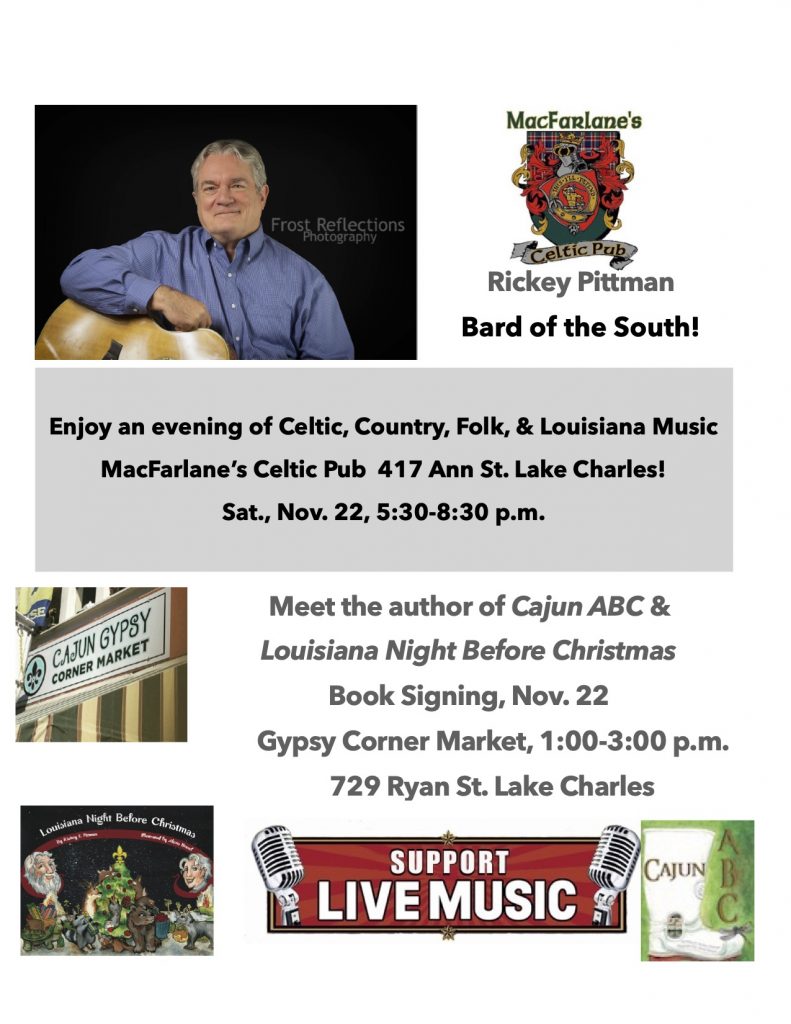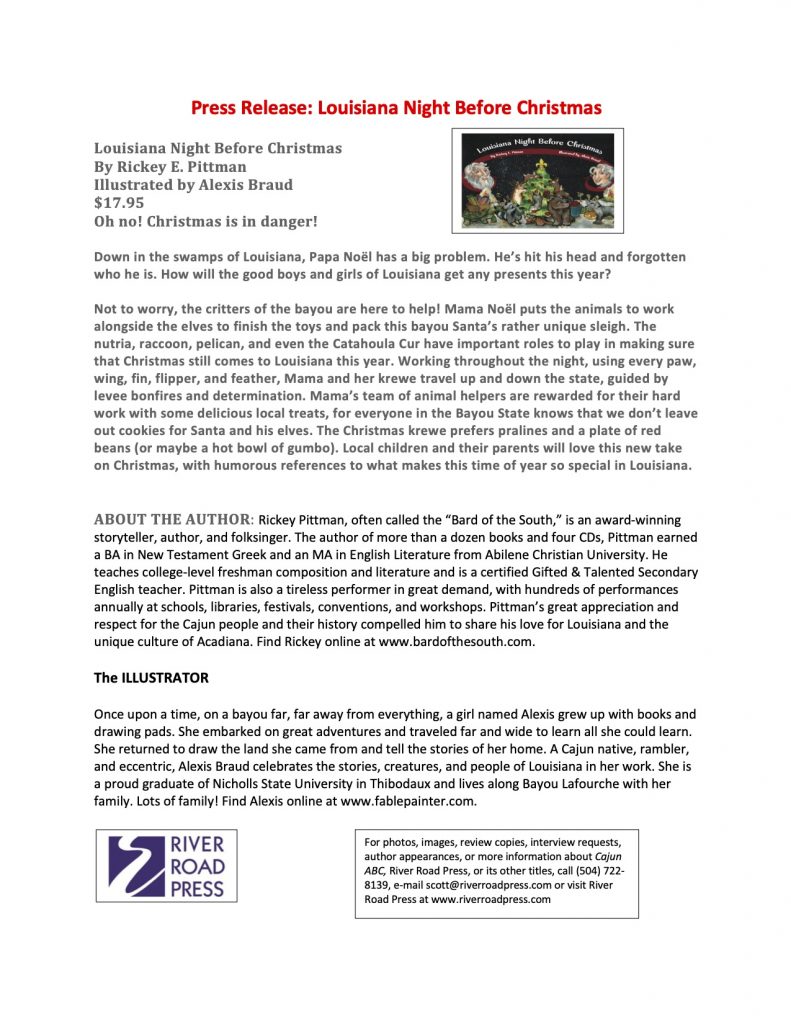The Faerie Flag of the Clan MacLeod
An ancient Scottish legend adapted and retold by Rickey Pittman
One evening, the chief of the MacLeod clan walked along the windy beach on the Isle of Skye. His heart was heavy because he had recently buried his wife. Also a seer, a wise woman, prophesied that longships would soon come, full of fierce, berserk Norsemen—wild men who came only to kill, steal, and destroy. “Let them come,” he said. He fiercely whispered the clan McLeod motto: “We will hold fast!”
The wind howled, and as he looked out at the white-capped waves, he wondered if the MacLeod Maidens, known as Riders of the Sea and the Choosers of the Slain, would return with the next storm to claim the souls of more MacLeod warriors when they were in battle or on the sea.
He walked on till he came to the Faerie Hill. There, looking directly at him was the most beautiful maiden he had ever seen, with long red hair and green eyes full of mystery and meaning. She held out her hand. He took it and from that moment, he fell madly in love with her. It was truly love at first sight.
“I am Fionna, from the land of the faeries,” she said.
“I am McLeod, of the clan McLeod.” They walked together arm and arm. Then, McLeod asked her to marry him.
“I must ask permission from the King of the Faeries. Will you go with me to the Otherworld?”
McLeod knew that few who ventured into the faerie kingdom ever returned. Poets had at times journeyed there to drink of the well of inspiration, and though they had returned, they were never the same. Some had withdrawn into silence, others had gone mad. Yet, in spite of the danger, MacLeod knew he would go. “Yes,” he said. “I will go.”
They walked on in the gray and deepening twilight and stepped into the Faerie Kingdom. Beautiful music filled the air. They came to the King of the Faeries, who studied MacLeod. “You are not afraid?”
“No,” said MacLeod. “I am MacLeod, of the Isle of Skye. I have come to ask for the hand of Fionna.”
The king of the faeries nodded. “I have heard of you, MacLeod. You are known to be a brave warrior and generous man. But the answer is no.”
“You don’t understand, my king. I cannot live without her.”
“Nor I without him,” Fionna said.
The king said softly, “Then come here and live with her forever.”
MacLeod almost blurted out his true feelings—that he would do anything, agree to anything, if he could only be bound to Fionna. But then he remembered his clan—the many septs and families depending on his leadership, his guidance, and his protection. “I must return. Many depend on me. I must think of them.”
“You are indeed a noble chieftan,” the king said. “Return then, but Fionna must stay.”
“Why?” McLeod asked.
“Because you are only mortal and you will break her heart. She loves you too much. She could not bear to watch you age and die.”
Fionna wept. The king of the faeries waved his hand and the music stopped. He looked into the bold, blazing eyes of MacLeod.
“I will allow you to hand-fast on one condition. She can only stay with you a year and a day. Then she must return. Do you agree? If not, you may leave with my blessing, but you will never see Fionna again.”
“We agree,” Fionna and MacLeod said together.
“This is my wedding present to you.” The king motioned to an faerie who handed MacLeod a beautiful gold-embroidered cloak. “This cloak will one day be a great blessing to you and a symbol of your clan.”
Fionna and MacLeod returned and lived happily together at Dunvegan Castle. Fionna gave birth to a son, and MacLeod had never been happier.
A year and a day later, MacLeod was walking in the evening with Fionna, who carried their son. Fionna had worn her wedding cloak. Stopping on a footbridge near the Faerie Hill where they had first met, Fionna looked into the distance and said, “It is time for me to return, my husband.”
MacLeod was stunned. In his months of happiness, he had forgotten their vow.
“No,” MacLeod said. “Stay as a mortal. Grow old with me and our son.”
Fionna said, “I must return, my love. The Faerie Kingdom is calling me, and that music is greater than even my love for you.”
As tears streamed down her face, she handed their child to MacLeod. “Take care of our son. Promise me you’ll never let him cry. As he grows, tell him about his mother, and about how much she loves him. Goodbye, my husband.” Then she turned and ran to the Faerie Hill and vanished in the twilight.
Five years later, their son became ill. As he shivered with fever, he cried softly. MacLeod was beside himself. He stretched himself on the floor and wept until he fell asleep.
That night in the Faerie Kingdom, Fionna heard her son crying and it broke her heart. She appeared by his bedside, held him and comforted him. She whispered magical words, kissed his forehead, and laid the gold-embroidered cloak across him.
The next morning, MacLeod was overjoyed to find his son well. Then he spotted his wife’s cloak on the bed.
“Where did you get this?” MacLeod asked.
“Mother left it. She said it has magical powers. She said, ‘I give it to the MacLeod clan forever. You may use the cloak only three times. Wave it in the air and the Faerie Kingdom will come to your aid. Guard it well. If anyone but a MacLeod ever touches it, it will turn to dust and vanish.’ ”
The cloak became known as the Faerie Flag and was the most treasured possession of the MacLeod clan. The MacCrimmons, the clan pipers for the MacLeods for thirteen generations, wrote many songs about the beautiful Lady McLeod and her magical faerie cloak.
Years later, Macleod took the cloak with him on a Crusade to the Holy Land. The cloak was tied to a flagpole and became the banner of his knights and it led them to many victories.
Once, a hermit sheltered MacLeod in a cave. The hermit warned MacLeod that an evil spirit would appear in the form of a beautiful woman. The she-devil would attempt to kill him and take Fionna’s cloak. That same evening, a woman did appear while he was sleeping and tried to strangle him. MacLeod stabbed her with his dagger. Before she died, she revealed the names of the future MacLeod clan chieftains.
When MacLeod returned home, he locked the cloak in a box. Since then, the clan has only used two of the three magical promises—once in a battle when they were outnumbered, and once in time of plague and famine.
In World War II, MacLeod pilots carried pictures of the Faerie Flag in their wallets for protection. Not one of those pilots was lost in the war.
A portion of the cloak still exists, displayed in a room of Dunvegan Castle. The fragile, faded yellow silk cloth rests in a glass case, looking as if it’s ready to crumble into dust if touched by human hands. Sometimes late at night, the ghostly, beautiful music of a piper can be heard coming from that room.
The Faerie Flag remains a symbol of the clan MacLeod and a reminder of an ancient promise given by the mysterious folk of the faerie kingdom.


